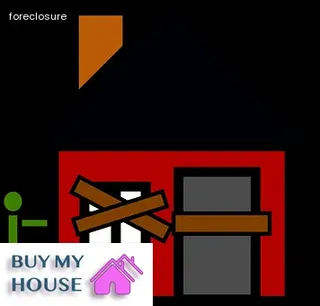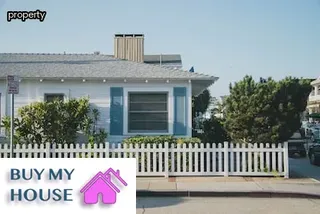Foreclosure is a legal process that lenders use to take back a home when the borrower has defaulted on their mortgage loan. It can be an intimidating process for homeowners, but understanding the basics can help make it easier.
Knowing your rights and responsibilities as a homeowner is key in foreclosure proceedings. This includes understanding what actions may lead to foreclosure, such as missing payments or not paying taxes, and knowing how long the process may take.
Additionally, familiarizing yourself with state laws regarding foreclosure can provide you with information about your rights and options throughout the process. It's important to also know who to contact if you are facing foreclosure or need help understanding the details of your situation.
Financial advisors and law firms specializing in foreclosure can be invaluable resources for homeowners during this time. Knowing all of these elements of the foreclosure process will help ensure homeowners have accurate information and advice before making decisions that could potentially affect them financially in the future.

While foreclosure on a house is a difficult and stressful process, there are alternatives available to consider before taking that route. One option is to negotiate with the lender or mortgage company.
Many lenders are willing to work out payment plans in order to avoid foreclosure, even if the payments are small at first. Another alternative is to sell the home quickly by listing it with a real estate agent or an online sale service.
Doing this can be challenging if the homeowner does not have enough equity in the property but can still be a viable solution for avoiding foreclosure. Homeowners may also opt for a deed in lieu of foreclosure as another way to give up ownership of their home without going through traditional foreclosure proceedings.
This involves signing over the deed of the house to the mortgage company and allowing them to take possession without having to go through court proceedings. Finally, homeowners may be able to get help from government programs such as loan modifications or principal reductions depending on their situation and where they live.
Each of these options must be carefully weighed against one another, as certain alternatives might not result in the best outcome for everyone in all circumstances.
Loan modification is an option for homeowners facing foreclosure. It involves changing the terms of an existing mortgage loan to make it more affordable for the borrower.
Loan modification can involve reducing the interest rate, extending the term of the loan, or adding a balloon payment at the end of the loan period. The lender is often willing to negotiate these changes in order to avoid foreclosure and keep the borrower's payments current.
In most cases, a loan modification requires proof of financial hardship on behalf of the borrower and an application fee to be paid to the lender. If approved, it will help reduce monthly payments and may even eliminate past due amounts.
It is important to remember that while loan modification can help prevent foreclosure, it does not guarantee success and should only be used as a last resort when all other options have been exhausted.

When it comes to selling a foreclosed home, there are some strategies you can use to maximize profits. Knowing the market and researching recent sale prices of similar homes in the area is important so that you can set a competitive price.
Additionally, investing in improvements like painting, landscaping, and making minor repairs can help increase the value of your home while also making it more attractive to buyers. Staging the property with furniture and fixtures also helps potential buyers envision themselves living in the home.
Lastly, pricing incentives such as covering closing costs or offering certain appliances with the sale can help make your listing stand out from other homes on the market. By following these steps, you can increase your chances of getting a good return on investment when selling a foreclosed home.
Selling a home in foreclosure can be a daunting task, but there are a few steps you can take to make the process easier. Firstly, you should contact your mortgage lender and discuss your options with them.
They may be able to provide advice or assistance in helping you avoid foreclosure. Additionally, it is important to be aware of local laws regarding foreclosure and find out what rights you have as a homeowner.
Once you have all the information you need, it is time to explore potential buyers for your home. You can do this by advertising online, in local newspapers and magazines, or by hiring an experienced real estate agent who specializes in foreclosures.
It is also important to consider the costs involved when selling a home in foreclosure including legal fees, closing costs, realtor commissions and repairs that may need to be made to the house before it is sold. Lastly, make sure you understand all paperwork associated with selling your home and ensure that all documents are signed properly before finalizing any sale.

Mortgage lending and foreclosures are two of the most important topics when it comes to learning about purchasing a home. Many people have questions about how these processes work, so this article will answer common questions about mortgage lending and foreclosure on a house.
First, what is foreclosure? Foreclosure occurs when a homeowner fails to make their mortgage payments and the lender takes possession of the property in order to cover their losses. How does one avoid foreclosure? The easiest way to avoid foreclosure is to stay up-to-date with mortgage payments, but it is also important to be aware of possible financial issues that could lead to missed payments.
Additionally, there are programs available for homeowners who are facing financial hardship, such as loan modifications or forbearance options. What happens when a home goes into foreclosure? A home going into foreclosure typically goes through an auction process where potential buyers can bid on the property, then the highest bidder will be given title to the home.
Finally, after a homeowner defaults on their mortgage loan, how long before they can purchase another home? Depending on individual circumstances and credit history, it may take several years after foreclosure before someone is eligible for a new loan or mortgage. Understanding how mortgage lending and foreclosures work is essential for anyone considering purchasing a home soon.
Foreclosure on a house has a significant and long-lasting impact on an individual's credit score. Foreclosure remains on an individual's credit report for seven years, which can make it difficult to obtain new credit, loans, or mortgages for that period of time.
During the foreclosure process, individuals may also find themselves with late payments reported to the credit bureaus. Furthermore, the amount of money owed during the foreclosure process, commonly referred to as deficiency balance, is often added to their total debt and will remain until it is paid off.
This can have a negative effect on their overall financial standing and ability to obtain new loans in the future. To make matters worse, individuals who have gone through foreclosure tend to experience higher interest rates when attempting to borrow money in their next endeavor.
All of these factors combined can ultimately lead to an extremely low credit score that could take years of building back up again.

When it comes to foreclosure on a house, understanding the difference between a short sale and full foreclosure is key. A short sale involves selling the property for less than what is owed to the lender and requires negotiation with the lender prior to approval.
A full foreclosure means that the homeowner has given up all rights to the property and it will be sold by the lender through auction. In both cases, potential financial repercussions can include damage to credit, tax implications, and possibly legal fees.
It is important to weigh all options carefully before making any final decisions regarding foreclosure on a house. Oftentimes there are other avenues available such as loan modification or refinancing that can help homeowners avoid foreclosure in the first place.
Consulting with an experienced real estate agent or mortgage professional can provide valuable advice when analyzing these options and determining which one is best suited for your particular situation.
Foreclosing on a house can be a difficult decision to make, especially if you are facing the possibility of having to take this drastic step. One option that may be available to you is a deed in lieu of foreclosure, which provides some advantages and disadvantages.
A deed in lieu of foreclosure allows the homeowner to turn over their property title directly to the lender instead of going through the process of foreclosure. This eliminates the costs associated with foreclosing on a home but does not always have the same effect on your credit score as true foreclosure.
The lender is likely to view your relinquishing ownership as an act of cooperation and may forgive some debt in exchange for the surrendering of ownership. On the downside, you will no longer own the property and any equity that may have been built up will be lost.
Additionally, there may still be some negative effects on your credit rating and it could take years before it fully recovers from this type of situation. As with any major decision regarding your home, it is important that you weigh all options thoroughly before making a final determination.

When a homeowner is unable to keep up with their mortgage payments, the bank may initiate foreclosure proceedings. The foreclosure process occurs in two stages: pre-foreclosure and REO (Real Estate Owned).
Pre-foreclosure is the period between when the homeowner defaults on their loan and when the property is sold at auction. During this time, lenders may offer several options to homeowners to help them avoid foreclosure, such as loan modification or repayment plans.
If these are not successful, the lender will repossess the property and put it up for sale at auction. After a successful auction, the buyer receives title of the property and becomes responsible for all mortgages and liens against it.
REO (Real Estate Owned) properties are those that have been foreclosed upon by a lender and returned to their possession. These properties are then listed for sale on the open market by banks or real estate companies in an effort to recoup some of their losses from previous defaults.
Buyers of REO properties should be prepared to pay cash upfront or secure financing from a private lender since most traditional lenders will not finance these types of purchases. It's also important to note that buyers must be willing to accept any existing liens against an REO property since they cannot be removed during a sale.
When a homeowner is unable to make payments and their house goes into foreclosure, the bank handles any unpaid property taxes in order to protect itself from potential losses. The bank will usually attempt to collect these funds from the homeowner, but if this fails, they may attempt to pay the taxes out of their own pocket.
If the bank is able to pay the taxes, they can recoup these costs by deducting it from any proceeds they receive when they sell the house. Alternatively, they may place a lien on the property so that any future owners are responsible for paying off this debt.
In some cases, banks will transfer these unpaid taxes to a third-party collection agency so that someone else is responsible for collecting them. Ultimately, banks must handle unpaid property taxes during the foreclosure process in order to protect themselves and minimize their financial losses.

Buying a home in pre-foreclosure can provide a great opportunity to purchase a house at a discounted price. However, there are some benefits and challenges that one should be aware of before going through with the process.
Firstly, the main benefit is the potential for lower prices than what you would pay on the open market. Since lenders are eager to avoid foreclosure and recoup their losses, they may be willing to offer discounts on the mortgage amount or even accept an all-cash offer.
Additionally, if you can negotiate directly with the homeowner, they may be more likely to accept an offer below market value as well. On the other hand, there are some challenges associated with buying a house in pre-foreclosure.
It is important to remember that you will still have to go through the traditional homebuying process including inspections and appraisals, which could take more time than usual due to potential delays in obtaining documents from lenders or sellers who are under financial strain. Furthermore, if you don’t have experience dealing with distressed properties or negotiating debt settlements then it’s important to research this area thoroughly before proceeding with an offer.
Lastly, it’s important to remain aware of any legal or financial issues that may arise during this process since it can involve complex negotiations and paperwork. Understanding these benefits and challenges can help you make an informed decision when it comes to buying a home in pre-foreclosure.
When you are unable to keep up with paying your mortgage, foreclosure can be a frightening prospect. It is important to understand the process and learn about strategies to help you avoid it.
If you find yourself in a situation where foreclosure on your house is imminent, there are steps you can take to prevent this from happening. One strategy is loan modification.
This involves working with your lender to adjust the terms of your loan in order to lower your monthly payment or extend the timeline for repayment of the loan. Another option is forbearance, which allows for a temporary reduction or suspension of payments until more affordable arrangements can be made.
A third option may be a short sale, which involves selling the property at market value and using the proceeds to pay off your outstanding debt. The key is to assess all available options and work with your lender as soon as possible so that foreclosure does not become an unavoidable reality.

Navigating post-foreclosure deficiency judgments & liens can be a daunting task for those who have had their home foreclosed. It is important to understand the difference between these two and how they may affect your credit score.
A deficiency judgment occurs when the foreclosure sale does not cover the full amount owed on a loan, meaning that the remaining balance becomes a personal debt responsibility of the former homeowner. Liens are used to secure payment of a debt and are placed against assets like real estate or other property owned by the borrower.
If you find yourself in this situation, it is important to take steps to protect yourself from further financial damage. This can include negotiating with creditors, hiring an attorney, or exploring potential bankruptcy options if your financial circumstances allow it.
In addition, it is important to stay abreast of any changes in state or federal laws that may help protect you or limit your liability in these matters. Understanding your rights and obligations is key to navigating post-foreclosure deficiency judgments & liens successfully and safeguarding your credit score for future purchases.
When a home is foreclosed on, it is known as a Real Estate Owned (REO) property. The lender takes ownership of the home after the homeowner fails to make their mortgage payments or defaults on their loan.
When this happens, the lender must take back ownership of the property and will attempt to sell it quickly in order to recoup their losses. REO properties are usually in distressed condition, meaning they may need repairs before they can be put on the market.
These properties are typically sold at auction in order to speed up the process and reduce costs for the lender. It is important to note that REO homes often require some form of repair or renovation, so buyers should be prepared for those expenses when making an offer.
Additionally, lenders may not accept traditional financing methods when buying an REO property and instead require cash payments, so buyers should be aware of this before submitting an offer.
When you foreclose on a house, the impact to your credit score can be significant and long-lasting. Foreclosure is one of the most damaging items that can appear on a credit report, as it impacts both your credit score and your ability to get a loan in the future.
The negative effects of foreclosure remain on your credit report for seven years and make it more difficult to qualify for new lines of credit. When you are in foreclosure, creditors will often close accounts, reduce limits or raise interest rates because they perceive you as a higher risk borrower.
Additionally, if you have other debt associated with the home such as second mortgage or home equity loans, those debts may also be affected by foreclosure. Finally, if the lender sells your home at a loss (for less than what was owed), they may come after you for repayment of that deficiency balance which can damage your financial stability even further.
It is important to understand these potential consequences before proceeding with foreclosure so that you can plan accordingly and take steps to protect yourself financially.

The first step in the foreclosure process is for a lender to file a public default notice with the county recorder or other appropriate authority. This notice serves as an official record that the borrower has defaulted on their loan and it begins the foreclosure process.
The public default notice also informs other interested parties, such as the homeowner, that they are in danger of losing their home to foreclosure. In most cases, this is followed by a demand letter from the lender to the borrower which outlines what payments are owed and when they must be made.
If these demands are not met within a specified period of time, then the lender will proceed to repossess the property. It is important for homeowners facing foreclosure to understand exactly what their rights and responsibilities are during this time so that they can make informed decisions about how best to protect their financial interests.
When it comes to foreclosure on a house, a common question is whether or not the foreclosure process erases debt. The answer is that the debt itself does not necessarily disappear with the foreclosure.
When a lender forecloses on a house, typically what happens is that the loan balance and associated fees are paid off using the proceeds from the sale of the property. If there is an amount still owing beyond what was recovered from the sale, this remaining amount is known as a deficiency balance.
The lender may then pursue legal action against you to recover this deficiency balance and this means that you would still be responsible for paying back any money owed after foreclosure. It’s important to understand that even though your mortgage debt has been discharged in full or partially through foreclosure, you may still be liable for any remaining debt after the sale of your home.
A: A judicial foreclosure is a process in which a court orders the sale of property to pay off an unpaid debt. It involves the filing of a lawsuit and can involve an eviction. A non-judicial foreclosure is not overseen by a court, but rather the lender has the right to sell the property without going through legal proceedings.
A: Foreclosure is a legal process in which a court orders the sale of a mortgaged property when the borrower fails to make payments. The courts will issue an order, which may be enforced by the sheriff if necessary, authorizing the lender to take possession of the property. The property is then sold at a public auction where the highest bidder, usually the lender, takes ownership.
A: When a homeowner fails to make their agreed upon payments as outlined in the mortgage agreement and promissory note, the lender may opt to foreclose on the house. This means that they will repossess the property and either resell it or keep it. Mortgage lenders may also charge higher mortgage rates on any future mortgages taken out by the homeowner in order to recoup their losses.